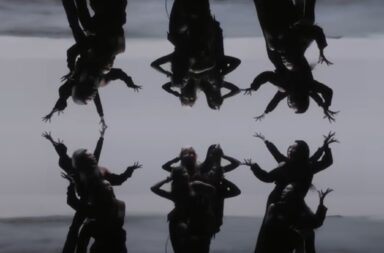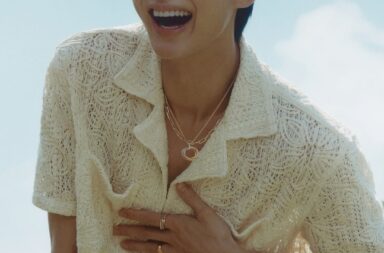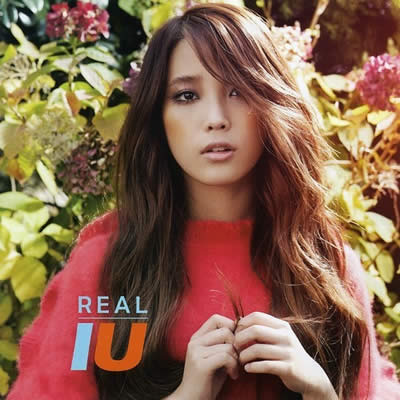
The IU of today is different from the IU that rose to prominence in 2008. “Good Day” was formulaic in terms of lyrical content and the same could be said about “You and I.” They both talked of love in a very sterile manner with an artificial sheen. “Red Shoes” showed more variety by having a source material to elevate the lyrics. These are all words that could not be applied to the current IU.
The turning point is 2015’s Chat-shire, where IU was able to be more hands-on with her music. The music is different from Modern Times and “Good Day” in that Chat-shire features a more quirky sound, different from the orchestration of Modern Times and the disco-pep of “Good Day.” While IU has had numerous lyrical contributions prior to 2015, Chat-shire is the first project where we feel IU’s personal touch on practically every track. 2017’s Palette had all but one song written by her. This year, IU is returning with her 5th mini-album, Love Poem, where we can expect more of her personal touch.
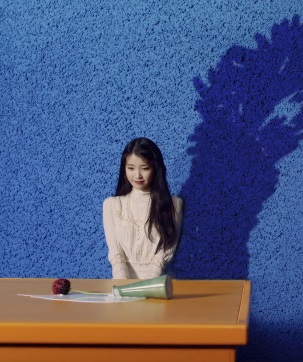
Chat-shire‘s promotional track, “Twenty-Three,” explores how the general public has a pre-defined image of IU that influences how they interact with her. It is a contrast that IU struggles with, wanting to be in love but also wanting to make money, wanting to act her age even while the public wants to continue to see her as a child. “Twenty Three,” is a gradual departure from pop star IU and the first taste of IU as an artist.
Which one? You cannot tell with my face
Making an opposite facial expression to the heart is really simple
Which one? Actually, I don’t know either
At first, I never wrote even a single line of lies
Which one? Choose only one, whatever it is
Being seen through the sunglasses
I’m used to it now
Another level of IU becoming personal are the small hints of her life. She works often with friends and has shown to be loyal to those she is closed to. One line in “BBI BBI” speaks about how people mutter about how IU is friends with someone who is always in a scandal. One can postulate that this is may have been a reference to Sulli, a close personal friend of IU. It is known that “Peach” and “Red Queen” were both inspired and dedicated to Sulli.
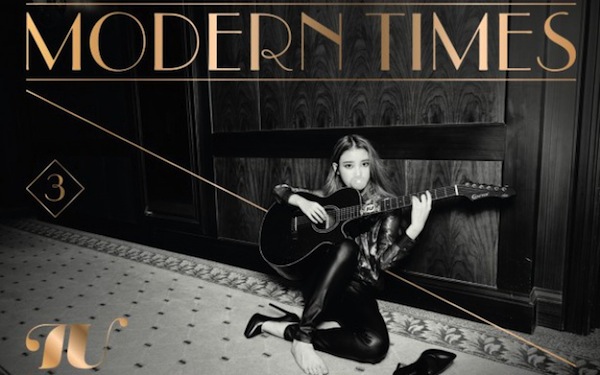
Released in 2012, “Peach” is a peaceful break between the commercial successes of “You and I” and “The Red Shoes.” According to IU, the lyrics convey the emotion when looking at their lover, with Sulli as the pretty girl referred to in the song. The lyrics explores how when the male lover sees this female, their “heart becomes numb and sore…all the words in the world is probably enough” to explain the female. The peach was a carefully selected symbol as it was IU’s favorite fruit, but also can be used and seen as something racy if wanted.
Then there is the “Red Queen”:
That girl with no expressions
That girl everybody hates
That girl even you know
That girl is oh so pitiful
That girl everyone is afraid of
That girl you know
“Red Queen” is different in tone, using the jazz-like underlying tones to underline tension and create a veil of seduction. Lyrically, it explores the blurred lines between real and fake, of the impact of the harsh reality of being a public figure, which is kept behind the scenes: “The thing is, that despicable girl, there was a time she used to laugh.” Using the framing device of this song as a “lighthearted story,” IU tells of how the girl everyone hates used to be loved and used to be full of life.
Everything fell in love with her
Her heart was that beautiful too
Even when she gazed at the tiniest, poorest of things
Those passionless, depressing eyes used to sparkle so bright
Oh Red Queen
IU is perhaps mostly associated with her ballads and lyrics that read like they were taken from IU’s diary. Two opposite ends of the IU ballad spectrum are Palette‘s “Through the Night” and “Ending Scene.” The former is a tender love song, of a love that is gone but remembered fondly. It touches upon the intimate moments, such as the first kiss, before relating the other part to the “letters on the sand where waves were, I feel you’ll disappear to a far off place.” It ends on a soft note, with the firefly used as a vehicle of IU’s words.
In my diary, all the words I can’t show them all to you
It’s that I love you
Tonight, I’ll send the glow of a firefly
To somewhere near your window
I hope it’s a good dream
If “Through the Night” is tender and soft, “Ending Scene” is heart-wrenching in its brutal honesty. “Ending Scene” revolves around the words spoken during a breakup. But instead of blaming one another, it goes into those words of farewell, wishing the other happiness, reminding the other that the pain of the breakup will pass and that the other party can once again function properly. It culminates in self-doubt of ever being able to love again.
Don’t say those words, please
You know those words hurt even more
You say you’re gonna love me, what use is it?
You don’t know what kind of heart you gave me
Please be honest with me
You know I believe anything you say
Just like you said
Will I ever receive love from someone who is like me?
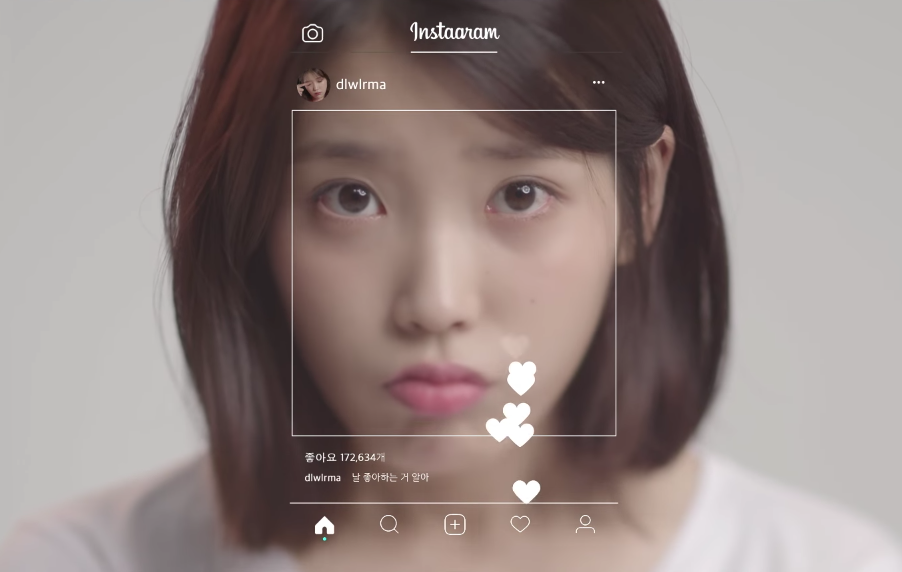
Finally, “Palette” follows all these trends of IU’s lyrics. It is an update since “Twenty Three,” once again letting the listener into her life. This time, it is about IU coming to terms with herself. In “Twenty Three,” there was a confusion in her identity, where IU is straddling the line between true to herself and being what the public expects to her. In “Palette,” she declares that she still loves the same things as before (Corrine Bailey Rae, for example) but she has also grown. She knows a bit more about herself and accepts that some will like her and some will hate her. There is less hesitation and more confidence to assert herself.
I like it, I’m twenty-five
I know you like me
I got this, I’m truly fine
I think I know a little bit about myself now
(Still have a lot to say)
I like it, I’m twenty-five
I know you hate me
I’ve truly found
I think I know a little bit about myself now
These are just several of IU’s lyrical contributions. A trend in all of her songs is that personal touch that invites the listener in, written in a simple manner that makes it universally understandable. Even while the most personal songs such as “Ending Scene” may have a heartbreak the listener has never experienced, IU’s voice breaks through and makes the listener experience it with her. There is an authenticity to her post-2013 releases that has allowed IU to evolve. And it is an almost certainty that this will continue to be true with her upcoming release.
(YouTube, ColorCoded Lyrics [1][2][3][4][5][6], Images via Loen Entertainment)
